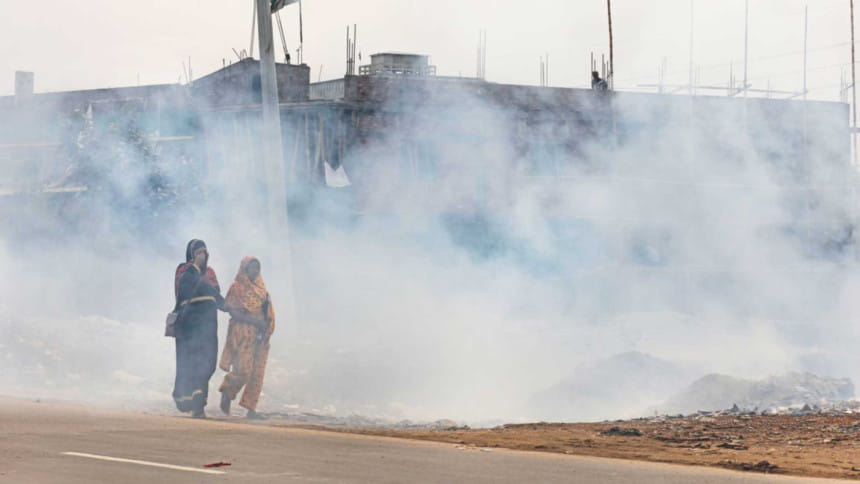Toxic air, toxic governance

The fact that toxic air containing harmful particles contributes to different types of health hazards has long been taken into cognizance by the governments in every developed country of the world. They are not only aware of the importance of clean air for healthy living, but they have also taken all possible measures to plug the sources of pollution. This is one significant step towards good governance that the citizens expect from their governments. But, regrettably, in many developing countries, governments remain conspicuously insensitive to citizens' health issues arising from toxic air.
Bangladesh is one such country where air quality in most of its cities and big towns would fail to pass the "acid" test any day of the year. Dhaka has topped the list of the worst offenders in the world on multiple occasions over the past few weeks. Almost round the clock, pollutants are released into the air by small and large chemical factories, brick kilns, earth cutting and filling, ovens using wood as fuel, vehicles burning fossil fuel, diesel generators, etc.
Stamford University's Center for Atmospheric Pollution Studies (CAPS) has found that since 2015, we have not experienced fresh air for even one week of a year. Yet, the government has taken no visible steps to address the deteriorating situation. A draft of the "Clean Air Act"—prepared by Bangladesh Environmental Lawyers' Association (BELA) and Bangladesh University of Engineering and Technology (BUET), and approved by the Department of Environment (DoE)—has been gathering dust since 2019. The draft proposes that the DoE prepare a time-bound National Air Quality Management Plan to improve the status quo. It also states that the government must announce the names of critical areas which have high Air Quality Index (AQI) scores.
It is evident to anyone breathing in the poisonous air that we need a comprehensive clean air act on an urgent basis, incorporating provisions for air pollution prevention and control, and a mechanism for proper institutional management. We also need to ensure implementation of existing laws and High Court directives in this regard, which begins with holding government entities responsible for their consistent failure to monitor and bring to book the polluters.

 For all latest news, follow The Daily Star's Google News channel.
For all latest news, follow The Daily Star's Google News channel. 



Comments